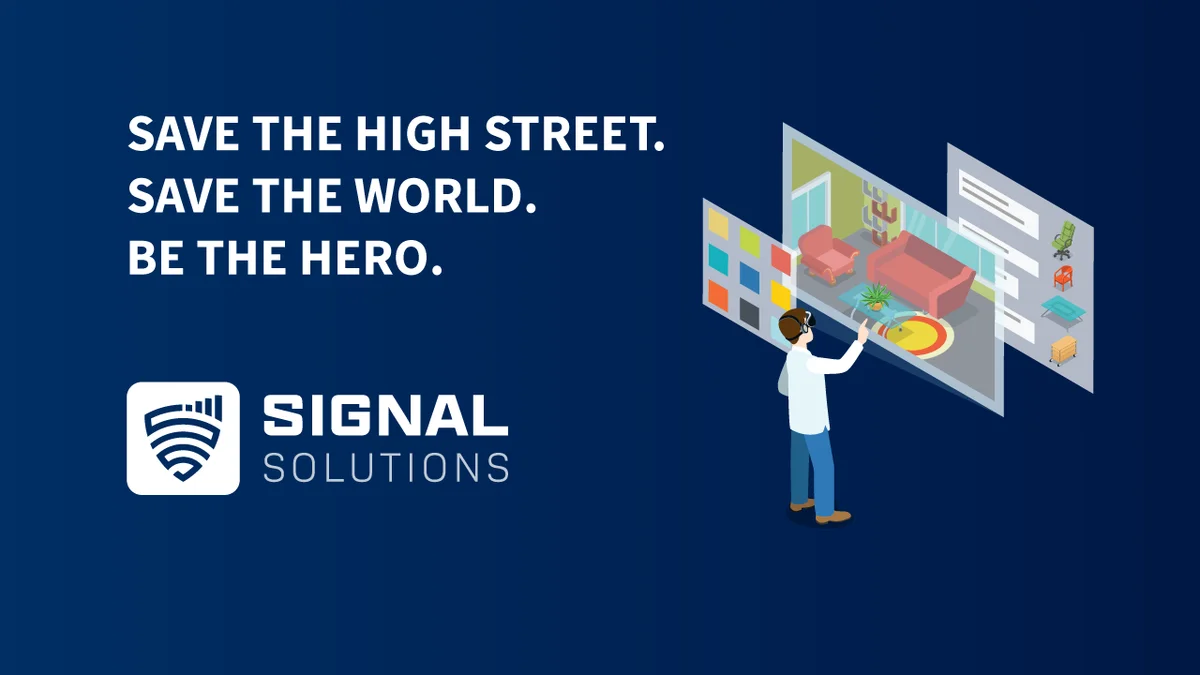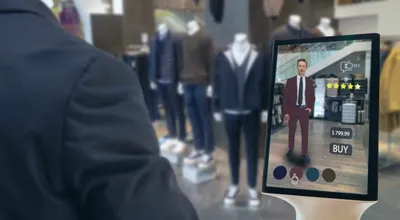
Save the high street. Save the world. Be the hero.
As we start to emerge from our houses and venture out onto our high street - is mobile signal strength ready for the ‘new’ us?
We’ve all embraced a more tech savvy existence over the last year – so how will the high street replicate our experience – and how will mobile coverage manage?
How do we prepare for a post-covid retail experience?
It’s not the most dramatic storyline for a superhero film but stay with me.
Even before Covid hit – the high street was putting on its boots and moving out of town to retail parks offering plentiful parking, big name brands and diverse food courts.
But according to business advisory firm, Deloitte, consumers have increased spending with local and independent retailers during the coronavirus pandemic.
It seems that due to the pandemic, there’s a greater sense of community spirit and resilience – and 46% of consumers reported that they are now more motivated to support local businesses.
This suggests that once this is all over – there will be a return to our much-loved high street.
So how is it going to be any different this time?
With social distancing restrictions placing new demands on retailers, many are looking at creative ways to entice shoppers back to the high street. The traditional high street retail experience has to compete with the online convenience – which is why more and more brands are looking at becoming a multi-purpose experience destination.
Enter VR
In a new world, where we are hyper-aware of touch-points, cross-contamination and sanitisation, virtual reality will allow customers to engage with a product and a brand in a whole new way.
Many brands and retailers are already using VR apps with a huge degree of success:
Estée Lauder launched the i-Match feature to enable customers to match skin tones to lipstick and foundation shades.
Specsavers extended their in-store frame styler app to meet the needs of their online customers during the pandemic.
And this year, John Lewis has launched an augmented reality feature on its IOS app which will enable customers to see how sofas and armchairs will look in their homes before they make that big purchase. Which is astounding that this potential has only just been realised, pandemic or no pandemic – higher price items and big home changes can now have a try before you buy opportunity.
But that’s just the start…
Using Oculus Touch, shoppers could even handle products and try them on. If we’re all still a bit hesitant to touch anything, items could now be showcased in the virtual environment. It has the potential to change how shops work altogether – and could be the disruptor needed to save the high street.

So who’s the evil villain standing in your way?
Quite simply – the building you’re in.
Modern building materials reduce mobile signal to the point that, wherever you are in the building, you just aren’t going to be able to connect to the rest of the world.
The 5 worst offenders?
- Masonry – extremely durable yes. Like all good villains it’s strong and robust. It’s also very good at getting in the way of mobile signal.
- Metal – The king of blocking signal. This one will deflect signals away like there’s no tomorrow.
- Glass – The more panes in a window unit, the more interference you’ll suffer.
- Fibreglass insulation – This tends to be installed in thick layers – which isn’t good news for wireless signals.
- Wood – This secret assassin can soak up radio waves and reduce mobile signal by -6 to -9db.
It all sounds dreadful doesn’t it – like you’ve been set up to fail, how can you possibly win back this storyline – remember – save the high street, save the world – be the hero.
The obvious solution
Mobile signal boosters – or repeaters as they’re often called – are devices used to improve mobile signal within buildings where the coverage is poor. (click here to find out exactly how they work).
At Signal Solutions, we exclusively use Nextivity Cel-Fi technology to ensure a perfectly legal and Ofcom-compliant solution to your mobile signal problems. Nextivity currently offers the only options on the UK market that are 100% legal to use and approved by Ofcom.
Our boosters work to enhance signals across your building on all major UK networks by as much as 1,000 times – meaning problems with access to in-store apps become a thing of the past.
- They’re 100% legal to use, fully compliant with Ofcom licensing laws
- They’re unconditionally network safe
- They’re accepted by UK regulators
- They provide high quality signal in areas where coverage is poor or non-existent
- They’re compatible with every mobile network
If you want to ensure your shop’s signal is super strong and reliable enough to guarantee you reap the benefits of in-store apps, let’s have a conversation.
Give us a call on 020 3823 7365.